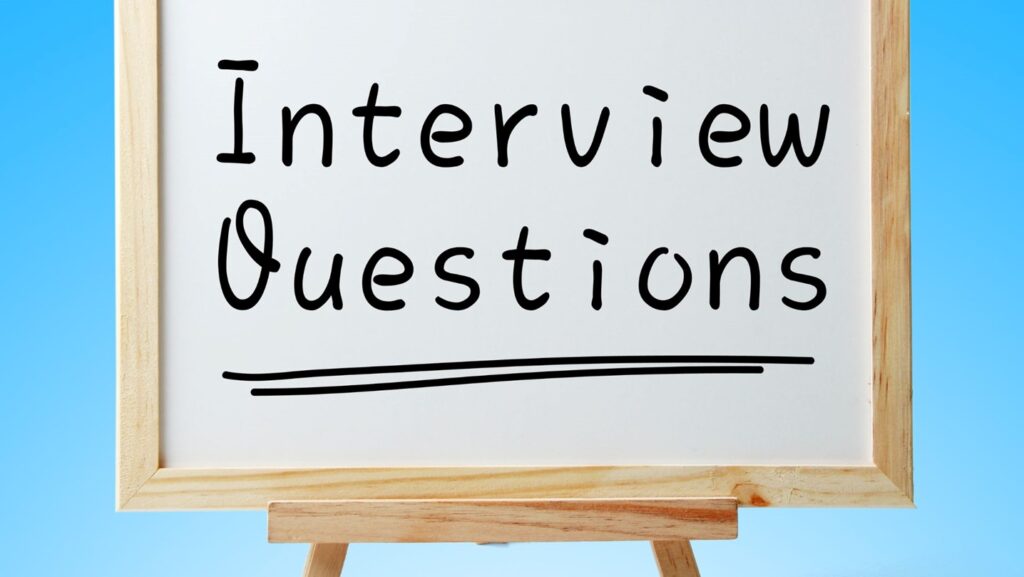Navigating the challenging realm of HR interviews can be quite daunting, especially for freshly minted MBA graduates from SMS Varanasi. Nevertheless, understanding the most commonly posed HR interview questions and preparing your responses can make a considerable difference.
Question 1: Tell me something about yourself.

You can use this template:
- Start with a brief introduction, including your name and educational background.
- Highlight your most relevant skills and experience, including any internships or extracurricular activities.
- Share your career goals and why you are interested in the specific job you are interviewing for.
- End with a positive statement about yourself and your excitement for the opportunity.
Here’s an example:
“My name is [your name] and I am a recent MBA graduate from [your university]. I have a background in [your undergraduate major] and I am particularly interested in [the specific area of business you are interested in working in].
During my MBA program, I gained experience in [list of relevant skills and experience, such as specific courses, internships, or extracurricular activities]. For example, in my marketing internship at [company name], I helped to launch a new product line and increase sales by 15%.
I am a highly motivated and results-oriented individual with a strong work ethic. I am also a team player and I am always eager to learn new things. I am excited about the opportunity to work at [company name] because I believe that my skills and experience would be a valuable asset to your team.
I am confident that I can quickly learn and adapt to the demands of the role, and I am eager to contribute to the success of your company.”
Question 2: What are your strengths?

While preparing an answer to this question, here are a few tips fresh MBA graduates can use:
1. Choose your strengths: Think about 2-3 strengths that are most relevant to the role you are interviewing for. Consider your academic and professional experiences, as well as your personal qualities that you can mention here.
2. Provide specific examples: Don’t just say that you are a strong leader or communicator. Provide concrete examples of how you have demonstrated these strengths in the past. Be sure to highlight your accomplishments and the impact you made.
3. Quantify your results whenever possible: Do know that interviewers love numbers and statistics. When you say “I increased sales by 15% in the first quarter”, it leaves a better impression on them instead of just saying that “I helped in increasing sales during my tenure.”
4. Relate your strengths to the role: Explain why your strengths make you a good fit for the role and the company. This shows that you have done your research and are genuinely interested in the position.
Here’s an example of how to answer such HR interview questions if you have applied for the position of Sales Executive as a fresh MBA graduate:
My three greatest strengths that I think are best suited to this position are my ability to create appealing visual displays, my ability to upsell products and my bilingual skills. I am fluent in both English and Spanish.
In my first internship, I was responsible for creating appealing visual displays of products to be sold. I used my creativity and knowledge of merchandising to create displays that were both eye-catching and informative. As a result, I was able to increase sales of the products that I was displaying by 20%.
In my second internship, I was responsible for upselling products to meet the sales targets of my team. I used my knowledge of our company’s products and services, as well as my relationship-building skills, to convince customers to purchase additional products. As a result, I was able to help my team achieve their sales targets for the month.
I have seen that my bilingual abilities are a valuable asset in the sales industry, especially for a company like yours that has customers worldwide. Knowing English and Spanish allows me to communicate with a wider range of customers.
I am also an extrovert and I enjoy interacting with people. This helps me to build relationships with customers and to create a positive sales experience for them.
I am confident that my strengths in creating appealing visual displays, upselling products, and bilingualism will make me a valuable asset to your sales team.
Question 3: Why are you interested in this job?

A common MBA interview Q&A that you might come across is ‘Why do you want this job?’. While the truth may lie somewhere between ‘I just want to start making money’ to ‘I am just trying my luck at all the opportunities that come across my way’, you have to be more tactful while answering the question.
Here are some tips you can use to answer this question:
- Begin with a compelling intro. Introduce yourself and your MBA specialization, and then state your job interest briefly.
- Showcase relevant skills & experience. Emphasize transferable skills like problem-solving, communication, and teamwork. Mention pertinent coursework or extracurriculars.
- Detail job alignment with career goals. Specify the learnings and achievements you hope to target in the role.
- Show passion for the company and role. Demonstrate excitement for the opportunity. Convey eagerness to contribute to the team.
Here’s an exam on how to answer this question if you are a fresh MBA graduate with an Operations Management specialization for a Process Re-engineering manager position:
Hi, I’m [your name], a fresh MBA graduate with a specialization in Operations Management. I’m interested in this position at your company because I’m passionate about using process improvement to improve efficiency and productivity.
In my MBA program, I took courses in process re-engineering, process improvement, and operations management. I also gained experience working on process improvement projects in my internship at [company name]. For example, I helped to streamline the company’s order fulfilment process, which resulted in a 10% reduction in lead times.
I hope I can use my skills and experience to make a real impact on a company’s bottom line. I also think that this position will help me to learn in real-world scenarios and develop my skills in this area.
[Your targeted company] is known for innovation and commitment to excellence. Glassdoor reviews say that it also has a great culture and lays great emphasis on employee development. I’m confident that I can be a valuable asset to your team, and you can help me learn and grow in this field.
Question 4: Where do you see yourself in the next 5 years?

Now, this is a tricky question. Human Resources personnel and interviewers favour people whose career goals align well with the job you are applying for. Hence, if you desperately want the job, give an answer that shows that you are going to stay in the job for a long time.
Be specific about what you want to achieve and the type of skills, experience, and opportunities you are looking for. And align all this with what the company is offering.
Here’s an example:
Hi, I’m [your name], a fresh graduate with a degree in [your major].
In the next 5 years, I see myself working as a [your desired job title] in a [your desired industry] company. I’m passionate about [your area of interest], and I’m eager to use my skills and knowledge to make a real impact in this field.
To achieve my career goals, I plan to develop my skills and experience in the following areas:
- [Skill 1]
- [Skill 2]
- [Skill 3]
I also plan to pursue opportunities to network with professionals in my field and to learn from their experiences.
Question 5: Would you like to work overtime or odd hours?

Again, this is a tricky question. You don’t want to say ‘Yes’ and be a slave to the corporate world. But you do not want to say ‘No’ and lose a great opportunity. Here are some HR interview tips you can use to answer such questions:
- Be honest about your preferences and availability. Remember, once you get the job, you will have to follow through with whatever you say.
- Also, avoid sounding too negative or inflexible.
If you are willing to work overtime or odd hours, you can say, “Yes, I am willing to work overtime or odd hours as needed. I understand that there are times when it is necessary to put in extra hours to meet deadlines or to complete important projects.”
If you are not willing to work overtime or odd hours, you can say, “I am sorry but I might not be able to work overtime or odd hours as I am [pursuing a course/have childcare or eldercare responsibilities/any other reason why you are not available].
Be professional while you are trying to answer this question. Remember, the interviewer is trying to get a sense of your flexibility and commitment to your job with this question.
Conclusion
MBA graduates (including those from SMS Varanasi) should anticipate crucial HR interview questions that test their background, strengths, and career aspirations – and prepare for them beforehand. By providing insightful, well-structured answers, aligning their goals with the company’s objectives, and demonstrating a mix of professionalism and passion, they can significantly enhance their chances of securing their desired roles.





